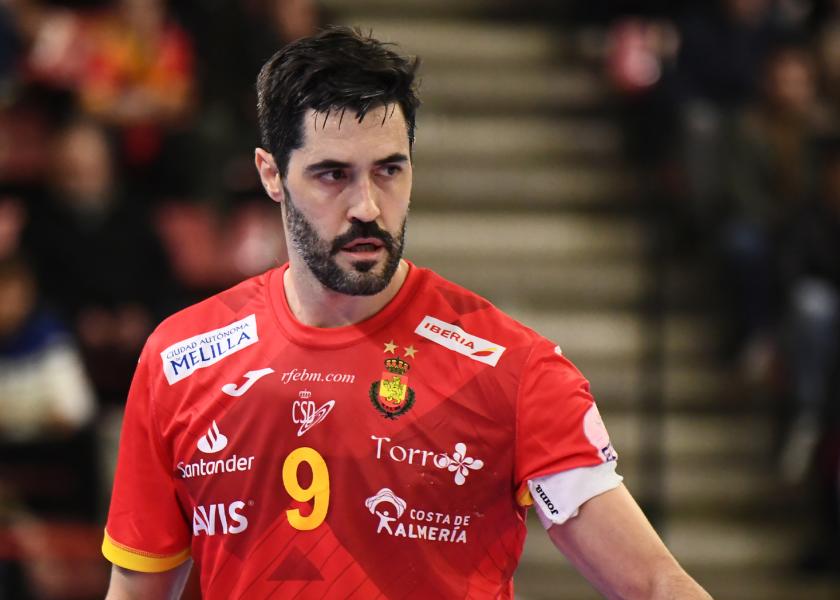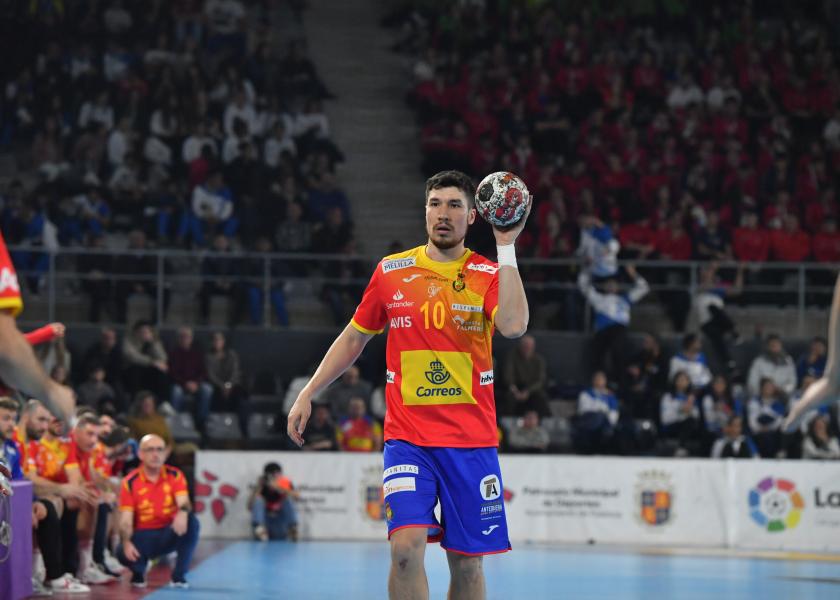Ian Tarrafeta
The brains behind the Spanish team
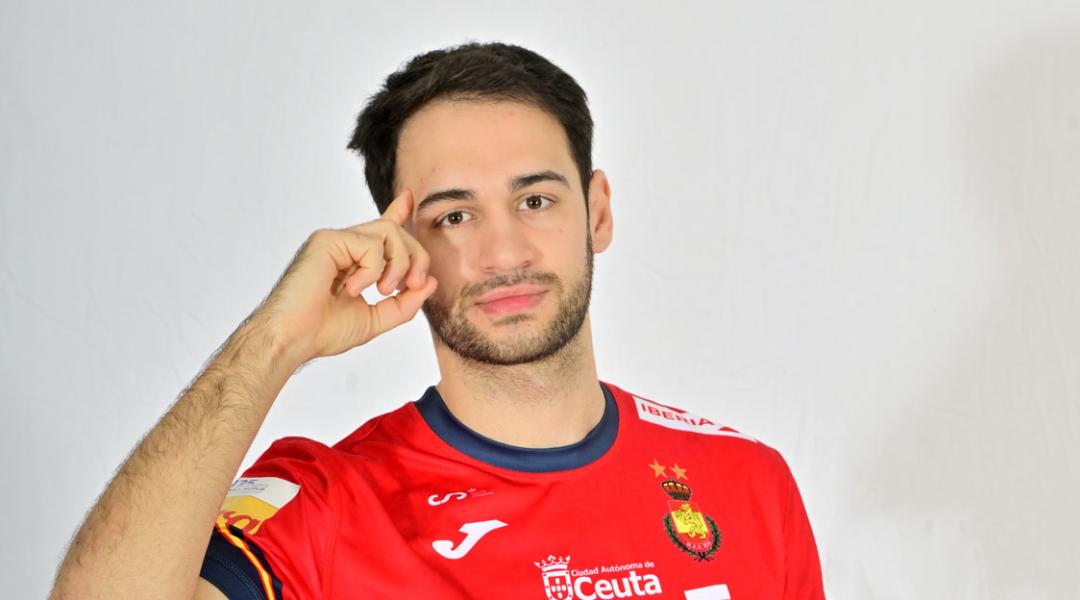
Ian Tarrafeta has been called to lead the Spanish national handball team during the 2025 World Championship and dreams of following in the footsteps of his role models: Dani Sarmiento, Raúl Entrerríos, or Chema Rodríguez. Fearlessly willing to fight for medals like they already did in Paris, where they won a bronze medal, the Spanish national team, who call themselves 'Hispanos', are are ready for battle.
Twenty years after winning their first World Championship (Tunisia 2005), the Spanish national handball team remains at the top of the leaderboard thanks to the excellent work that is done from its foundation up. Work defended by one of the players called to lead it over the next few years: Ian Tarrafeta (Sabadell, 1999). “In Spain, there are several schools that share a way of understanding handball—he assures us—. When we grow up and get to the senior national team, we realise that we all have the same handball in mind and that makes things easier.” A few hours before taking part in the World Championship in Norway, Denmark, and Croatia (14th of January—2nd of February), this centre back brought up in BM Granollers has a clear goal: “The idea is to always keep extending the Spanish national team’s track record.” That “always” is not fortuitous, but rather an accurate reflection of the competitive gene that has turned the Hispanos into an everlasting and formidable national team. Personally, Ian, who will have to step up in terms of responsibility, hopes to be able to get rid of the thorn in his side from the last World Championship: “At my first World Championship, I got injured at the start, so now I’m really excited.”
Spain won bronze at the Paris Games; what are your expectations at this World Championship? Do you see yourselves on the podium again?
We need to go step by step, but we can set ourselves the goal of reaching the semifinals and fighting for the medals. Really young players with little international experience have been included in the call-up, so we’re in the same situation as for the European Championship in 2022, when I made my debut at a major championship, and we came second.
Will you break the Danes’ winning streak at the last two tournaments? Which other national teams will fight for the title?
If the Danes are on top form, they are still the favourites. They have some of the most destabilising players in the world and beating them won’t be easy. Then there’s France, who always have a chance because of their talent and physical condition. And then there’s a group of national teams who could make it to the semifinals: Germany, Sweden, Spain, Egypt, Norway, Croatia, or Slovenia.
If the Spanish national handball team is known for anything, it’s for its competitive streak and this is reflected in its results. Have you spoilt us?
Could be. We Hispanos are always competitive, and we prove this tournament after tournament. We work well as a team and the group is united, and that’s really important to achieve good results. At the Paris Games, we overcame tough matches and were one step away from making the final. We proved the fighters that we are and our winning nature. These are the distinguishing traits of this national team.
“At the Paris Games, we proved the fighters that we are and our winning nature. These are the distinguishing traits of this national team”
What is the atmosphere like in the handball national team? Is it one of the secrets to your success?
We’re like a family and everyone knows each other really well. We try to bring the younger players, who already know each other from the junior categories, in as quickly as possible. In the end, we spend a lot of time together, both on and off the court, and that’s one of our strengths.
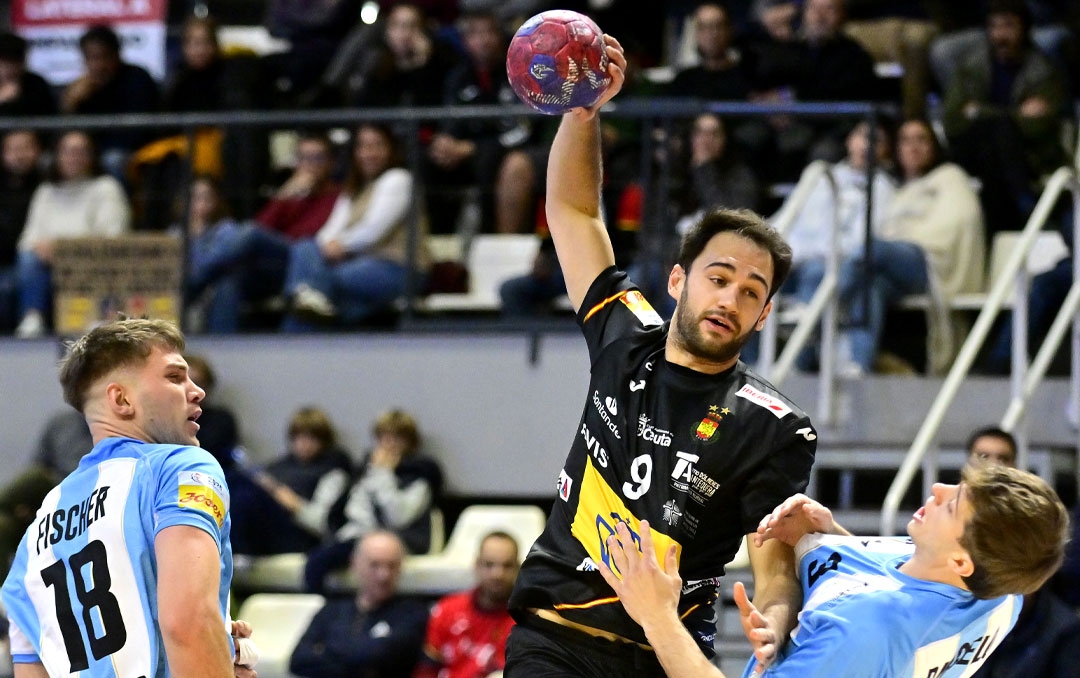
Ian Tarrafeta pulls his arm back while surrounded by two rivals at a friendly match against Argentina. © RFEBM
In recent times, the national team has lost some of its role models, like Joan Cañellas, or Jorge Maqueda. Can you feel the loss of these veteran players?
Yes, we feel it in terms of experience and other aspects. We’re going to miss Jorge’s character or Joan’s talent, but we have to look to the future. The coming generation is excellent and we’re going to find the way to replace them to face new challenges. There’s no other way. This already happened when Entrerríos, Sarmiento, or Aguinagalde retired, and we stepped forward. We’re still reaping the results, and we hope the same will happen again now.
The Cikusa brothers (Petar and Djordje), Víctor Romero, Ferrán Castillo, or Ian Barrufet are leading this generational handover. Is the future of Spanish handball safe?
Yes, of course. These are players who, despite still being juniors, are fearless. You can tell in their self-confidence and character. There’ll be plenty of talent for a while. A good foundation has been built, so there’s going to be a stream of top players; there’s no need to worry in that sense.
“There’ll be plenty of talent for a while. A good foundation has been built, so there’s going to be a stream of top players; there’s no need to worry in that sense”
Currently, Spanish players have to go further afield to succeed. Would you like the Liga ASOBAL to bring back all that talent and be back on top form?
Absolutely. Who wouldn’t? All Spanish players would like to play closer to home. I grew up watching the ASOBAL, which was the best league in the world. The situation in recent years is a shame. It’s slowly achieving things, but it has not developed traction. Hopefully one day it will recover the level it had 20 years ago.
This year will mark 20 years since that first World Championship gold medal (Tunisia 2005). What is the key for Spain to continue at the top of the handball leaderboard?
For there to continue to be good players. Spanish players, even though we go abroad to play more now, are still trained with the same ideals and when we get together for the national team, playing together comes naturally and we understand each other really well, as if we grew up together. That’s another key to success.
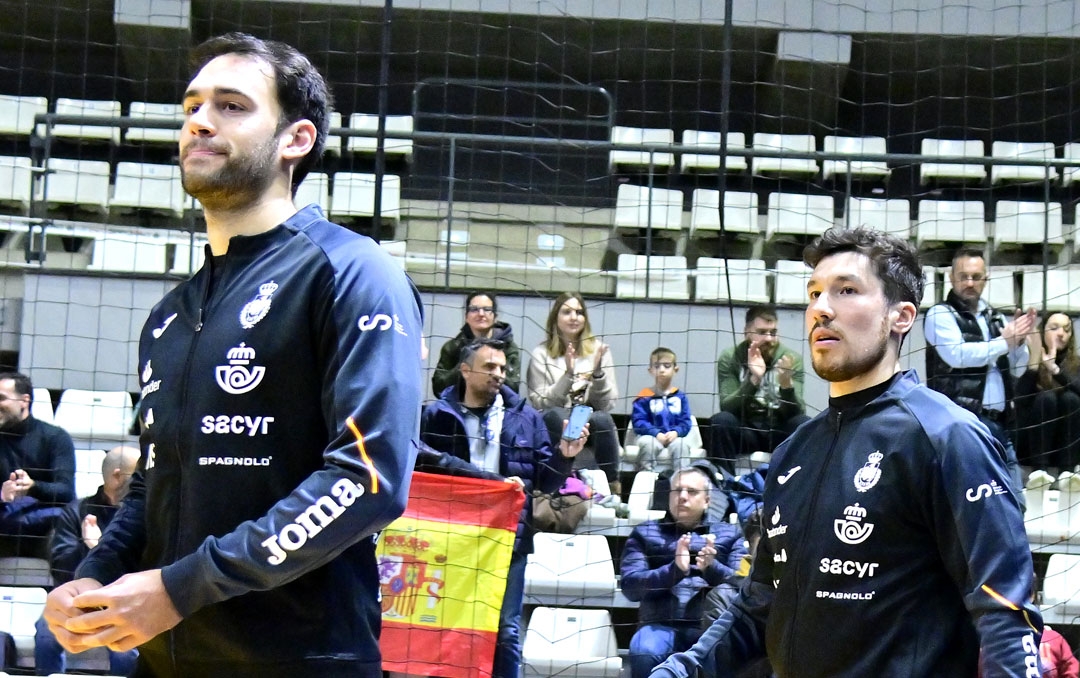
Ian Tarrafeta, followed by Alex Dujshebaev, before a friendly match against Argentina. © RFEBM
Which Spanish players have been your role models?
Many. In my position, Dani Sarmiento, Chema Rodríguez, or Raúl Entrerríos have been front of mind. Also, Joan Cañellas, who I got to know better because I shared a room with him. But the list is huge. There are so many great players who have been through the national team since I started watching handball on TV.
It’s not easy to get to where you are. What advice would you give youngsters who dream of playing at a World Championship?
The main thing is to work hard daily and pay attention to the little things. Taking care of yourself physically, training well, paying attention to the coaches and putting in the work, work, work... Obviously there’s a stroke of luck in any career, but you have to try to buy all the tickets possible to win the prize and that also includes not being afraid of making sacrifices. When the chance to give your all for handball comes, you have to do everything to make that dream come true.
“When we’re sponges, it’s important to absorb images and moments that, as you grow up, help talent to flourish”
And what is talent for you?
There’s a lot of talk about innate talent, but I don’t believe it exists. That is, I don’t believe that being talented in a specific activity is written in our DNA, but I do think it’s really important to be in contact with said activity from an early age. In my case, my father used to play handball, and I used to go and watch him play, I’d touch the balls, stand at the edge of the court... When we’re sponges, it’s important to absorb images and moments that, as you grow up, help talent to flourish.
